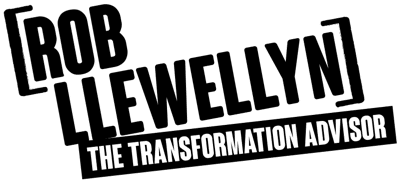
The Best Ways to Achieve Exponential Growth
As the digital economy matures, we are seeing shifts in industry after industry where the digital is replacing the physical. The most obvious example, which helps make this point is the music industry, and the image above illustrates how digital has disrupted the music industry's physical revenue.
To different extents and at various periods in time, this will happen in every industry – including consulting. But how will you transform your independent consulting business to capitalise on the incredible digital opportunity on offer? And what will happen to those that are too set in their old ways to believe that the way the world does business is changing dramatically. The answer to the second question is that they will suffer the “Kodak Effect”. As this Harvard article explains; “Kodak remains a sad story of potential lost. The American icon had the talent, the money, and even the foresight to make the transition. Instead it ended up the victim of the aftershocks of a disruptive change. Learn the right lessons, and you can avoid its fate.”
The Good Old Days
I've been consulting as an independent since the 90s, and for the bulk of that time I've had to physically deliver professional services to my customers. The fact that my work has spanned several continents as opposed to towns, has made it very difficult for me to look after any more than a handful of customers at any one time. While I occasionally sub-contract work to others, when a company wants “me”, then I physically need to tend to them.
This is how most consultants have operated since the dawn of the consulting industry when Arthur D. Little set up in Massachusetts back in 1886. From the McKinsey's of the world to the tens of thousands of independents, the large majority of consultants have and still do, physically go out to the customer to help them. Of course we're all likely to do some remote work, but we still need to physically service our customers.
The Shift to Digital
Now with affordable and easy-to-use digital tools, any professional consultant can deliver their expertise, advice and guidance in their specific areas of expertise to an exponential number of customers, without the constraints of time or geography. There is no excuse for any professional consultant, particularly when there are plumbers, artists, carpenters and even knitting experts using these digital tools and innovative buisness models to generate their own digital revenue. If they can do it, so can a professional consultant. It's just a matter of being open to learning about new ways of working.
Adopting a Digital Mindset
In the same way that leaders of large corporate enterprises are advised to adopt a digital mindset, it applies to independent consultants too. Digitisation needs to become part of what defines your small business, and without it, you will expose yourself to becoming irrelevant in the digital economy and lose out on taking advantage of the unprecedented opportunities now available to every independent consultant. It's even possible for those still in full-time employment to venture into selling their knowledge via their own digital platform.
In the past, independent consultants rarely needed to consider their business models to leverage the innovative use of digital technologies. This means that their mindsets now need to shift to address the challenges they will face in the digital economy, and while some will do this well, others will struggle – or worse, not feel the need to try. And it all starts with looking in the mirror and asking “what do I need to change in myself to become an effective digitised consultant?”
While corporate leaders first need to shift their own mindset, and then those of their senior management teams and workforce, the only mindset an independent consultant needs to shift is their own. Which means that transformation for independents, is far easier to undertake than it is for corporate leaders.
From Digital to Physical Customers
In Chapter 17 “How Digital Democratized Consulting” of Phantom Ex Machina (Springer 2016) I wrote about how digital has enabled small consulting firms and independent consultants to productise their expertise into online courses for customers to buy. I explained that by using affordable digital solutions, any small business can now find a market globally, build a brand among a discreet niche, launch a platform and be open for business, selling its digital products every hour of the day and every day of the year.
I find it not only financially rewarding, but also personally rewarding to wake up, look at my iPhone and discover that another person on the other side of the planet, who I don't know, has purchased one of my digital offerings while I was sleeping.
As more customers purchase the consultant's digital offerings, which are typically much cheaper than traditional consulting services, the customer begins to see the consultant as familiar and trusted. This is similar to what happens when we read a book written by someone we've never met. And it's those who we trust and have become familiar with that we go on to do business with in the physical world.
Delivering Your Digital Offerings
As an increasing number of independent consultants learn to adopt digital business models themselves, thousands of small pieces of business will be awarded to these consultants, instead of larger consulting firms.
There are many ways of delivering your digital expertise to customers, but essentially you need a business model, platform and the mechanisms to both market, host and sell what you have on offer. This will all be covered in the Digitised Consultant course being launched in early 2017.
